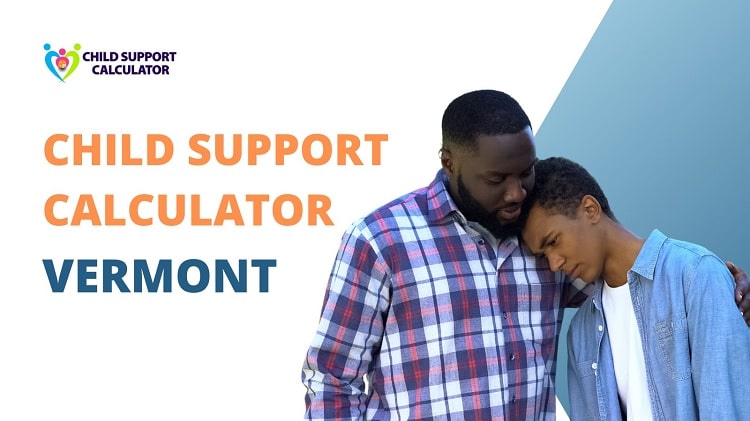Alimony In Washington State
Alimony (spousal maintenance) is a payment made towards the other spouse by a court decree. Maintenance payments in Washington are intended to ensure that neither partner is left penniless during and after a separation.
How much will you owe your ex in spousal support, spousal maintenance, or alimony following your Washington State divorce, or how much will they owe you? During the divorce proceedings, spousal maintenance is a frequent cause of uncertainty and concern.
Spousal maintenance permits you to recoup economically when the marriage ends, whether there is an income or asset disparity between couples or if one partner has been economically dependent on another.

In the state of Washington, nevertheless, spousal maintenance is not mandated, and each case is judged on its own merits. It’s crucial to know how much spousal support you’ll receive and what your economic status will be after your divorce. The quantity of alimony you pay (or get) in Washington is affected by a combination of circumstances.
The court wants both partners to be self-sufficient but recognizes that some spouses require time and financial encouragement to become self-sufficient, particularly in instances where one partner left a career to raise a family. This article will explain tto you about the alimony in Washington State.
Types Of Spousal Support In Washington State
Spousal support in Washington can be awarded in the accompanying directions:
Temporary Alimonyin Washington State
The couples have a constitutional obligation to support one another during the divorce proceedings. While a court is uncommon to award maintenance in the ultimate divorce order, it is very likely that a court will order temporary alimony while the final separation order is being finalized, provided one party needs the money, and the other has the means of paying.
Because being divorced in Washington can take up to a year, one party will get temporary spousal support for about a year, even though it is evident to all parties that spousal support will never be ordered as part of a final judgment.
Because short-term marriages are often simple (provided that there are no children), the partners should really be able to separate in three to six months. Nevertheless, if one of the couples is getting indefinite temporary alimony and has a slim possibility of receiving maintenance in a final divorce settlement, they may be economically motivated to prolong the process.
In such circumstances, it is in the best interests of the person paying alimony to aggressively drive the divorce along and ensure that the case is prepared to be finalized. Failure to do so will result in petitions to prolong the case, which will result in a lengthy period of support payments.
When the case is ready to be resolved, the defendants may meet with attorneys and a mediator to try to reach an agreement. Because the trial is normally numerous months away, the spouse obtaining spousal support is encouraged to wait until the latest possible moment to settle, thus ensuring additional temporary alimony.
The issue is that the financial motivation for the side obtaining spousal support tends to shift agreement back to the day before the trial. This can cause a number of problems associated with both parties, as well as an increase in attorney fees because both sides must prepare for litigation.
Short-term maintenance
Dependent spouses can become economically independent in many circumstances, but they may require time (and maintenance) to obtain an education or work knowledge that will allow them to endorse themselves.
For example, if a husband quit his job to raise a family while his wife worked and improved her work skills, the court may make an order for the wife to charge short-term (also known as rehabilitative) upkeep for a period of time sufficient for the husband to renew his education or skills in order to return to the job.
Short-term funding will have an end date of occurrence (for example, graduation from college) set by the assessors. Many courts will also allow a supported partner to request that the judgment be extended or reviewed before it lapses.
Long-term maintenance
Long-term support, often known as permanent support, is a form of support offered to partners being unable to sustain themselves. If you’ve only been wedded for three years, the court is reluctant to grant long-term support. The court may impose indefinite assistance for lengthier marriages or even where one partner has been unable to function due to physical disability, advanced age, or if the assisted spouse has been unable to embark on this career to find work.
Qualification For Spousal Support
The “need and capacity to afford” test is required in each and every spousal maintenance case in Washington, which means the supported spouse must show a monetary requirement and that the supporting spouse can manage to spend. Before determining whether a spouse requires support, the court must split the couple’s common property, determine custody and parenting time, and determine child support.
After the court determines that spousal support is reasonable, the court must decide on the form, quantity, and tenure of support in each instance. Judges cannot employ a formula to evaluate maintenance rewards. Therefore, the court must take into account the following elements:
- The spouse is seeking maintenance’s monetary resources, whether distinct or community assets from the separation and any child support orders for the pair’s children.
- The length of time it takes for the assisted spouse to obtain the educational qualifications needed to find work.
- The standard of living of the couple.
- The duration of the union.
- The spouse is requesting support’s age, cognitive and psychosocial state, and financial responsibilities.
- The paying parent is able to sustain economic independence while offering assistance.
Couples can work with each other to dispute the conditions of their divorce support award, just like they can with most relationship breakdown matters. If you and your spouse agree on the type, length, and amount of funding, the judge will accept the order, regardless if you work one-on-one, in arbitration, or with attorneys.
In general, the court considers the party requesting spousal support’s financial need, though. The court determines this requirement by evaluating the person requesting alimony’s monthly wage to their monthly expenses. A party’s economic hardship is the difference between its revenue and its expenditures.
The judge next examines if the other party is financially capable of paying alimony while also fulfilling their own commitments. The court decides whether the individual is required to pay alimony and can manage to do so and in what quantity and use the same monthly income and expense technique.
The court’s objective for marriages lasting 5–25 years is to provide the economically weaker partner time to acclimate to their lifestyle change as well as money and energy to re-enter the workforce. Spousal support is frequently referred to as “transitional” or “rehabilitative.”
Making an Argument for Alimony in Washington State
The party requesting alimony must develop a compelling narrative to support their petition in these situations. If you’ve been out of the profession for a long period of time and therefore need to re-enter your sector, chat with a career counselor to find out how long it would take.
You must also take action to implement their recommendations. If the career counselor advises you about how to compile your résumé and which organizations to apply to, you must take appropriate measures to do so before settlement negotiations or trial. Your reputation will be seriously harmed if you do not do so.
Furthermore, if your spousal support justification incorporates going back to school for further education, you should find out how much it will cost and how long it will take to accomplish the coursework/diploma/degree.
And you must take appropriate steps to achieve that aim, such as submitting an application to the program. If you don’t accomplish these things, your case for alimony at agreement or judgment will be substantially weakened.
Opposing a Spousal Support Award in Washington State
If you are contesting a spousal support award, you should act in a way that maintains your reputation with the court and the opposition candidate. For example, buying a new fancy car while divorcing and claiming poverty is generally not a good idea. This may seem simple, but based on the actions of many litigants, it seems that a significant section of the population is unaware of this reality.
When it relates to spousal support the assertion, the optimal tactic for both sides is to take a decent position, explain why to the other side and the court, and then act in accordance with that situation.
Remarriage, Domestic Partnership, and Death
If the supported spouse remarries or forms a new domestic partnership, spousal support will be terminated unless such judicial order is different. In contrast, whether either spouse dies, maintenance payments cease.
Impact Of Child Support
A judge must first assess child support and then, if necessary, the quantity of supplemental maintenance. While child support is intended for the child, the money also assists the child’s parent. Everyone in the household benefits from the payment of the child’s expenditures.
The parent is protected by the roof over his or her head, by the warmth in the child’s home, by the cable fee for the child’s TV and an internet connection, and so on. When the beneficiary also obtains child support, this frequently reduces maintenance awards.
Child support, in fact, frequently cuts maintenance dollar for dollar. This is particularly true when the court is trying to balance the economic position of the parties. Many courts and regulators will only grant maintenance if it leaves the beneficiary with half or less of their previous family’s income, plus child support.
Without Regard To Misconduct
The state of Washington is a “no-fault” divorce state. As a consequence, many of the state divorce-related regulations along with the support statute forbid judges from evaluating a spouse’s misconduct. Many non-attorneys are led to assume that Washington judges will never examine a partner’s wrongdoing, which is untrue.
It generally means that a spouse cannot be punished for initiating the separation. Wrongdoing is nonetheless significant in other situations, such as when a spouse inadvertently lowers his or her earnings to escape a maintenance award or when a spouse conceals account statements.
This may seem nitpicky, but when comparing Washington to ‘at-fault’ divorce states, it makes total sense. In states where one spouse caused the separation, courts may reduce alimony and assets given to the partner who triggered the divorce. A housewife who caused the separation by cheating on her husband, for example, may receive no alimony and hardly any assets.
On a gut level, this seems reasonable. However, pinpointing who is to blame for a divorce is sometimes impossible because both spouses injured someone during their marriage. Furthermore, seeking to discover who triggered the separation aggravates the situation.
Maintenance Payments
The form and regularity of support payments are entirely up to the judge. The court in Washington frequently orders periodic payments, which are generally biweekly or monthly. With the final judgment, the court will likely issue an earnings withholding order, which requires a contributing spouse’s employer to withhold money for support and forward them to the appropriate state agency.
If one of the contributing spouses is self-employed or does not receive a regular paycheck, the judge may impose lump-sum payments, which can be made in one installment or over a period of time.
Judges may require a spouse to assign the title to personal or real assets to fulfill maintenance payments in exceptional circumstances.
Maintenance For Unmarried Couple
Maintenance awards are only permitted in Washington if the couples were wedded or registered as husband and wife. Maintenance is not available to parties who were in other marital-like relationships, such as meretricious relationships, committed intimate relationships, or unregistered domestic partnerships.
Furthermore, Washington does not recognize common law marriage. In the legal system, marriage states that couples become wedded after living together as a married couple for several years. Marriage in Washington, on the other hand, needs a wedding and an officially recognized certificate.
Other types of marriage, such as common law marriage, are only recognized in Washington if they were legally performed under the laws in effect at the time. In general, Washington courts will recognize legitimate international marriages regardless of how they took place. Polygamous and incestuous marriages are the only exceptions to this law, which Washington never recognizes at all under the situations.
Modifying a Spousal Support Order in Washington
Unless the order states otherwise, any spouse can seek a modification of a spousal maintenance order if they can show that their situation has changed significantly since the judge signed the previous order. If the supporting spouse is involved in a car accident and then becomes permanently disabled, the court will typically reconsider the case and reconsider the criteria indicated above.
If you’re seeking a modification of your maintenance order, you must continue to pay the existing maintenance amounts until the court sentences differently. If you fail to comply with an established court order, the judge may summon you to a session to explain yourself. After that, you may be ordered to pay your ex-attorney partner’s and court fees, fined, or sentenced to prison.
In most cases, lump-sum and asset transactions are irreversible.
Taxes and Spousal Maintenance
Traditionally, paying spouses could subtract maintenance payments as a tax exemption at the end of the year, with the beneficiary reporting and paying taxes on the income. The Tax Cuts and Jobs Act, however, abolished the tax-deduction benefit of providing support and the reporting requirements for recipients for all divorces finalized (or modified) on or after January 1, 2019 under alimony in Washington State.
The most recent tax changes may have an impact on your finances, particularly if you’re the spouse who pays child support. Speak with an experienced family law attorney in your area before negotiating a support order or asking the judge to do it for you.
Faqs
Is there alimony in Washington state?
In Washington State, courts typically give one year of alimony for each and every three or four years of marriage. There is no official statute or case law that states this formula, but it is an often mentioned guideline that courts are required to follow.
What is alimony in Washington state?
Spousal support, also known as alimony or spousal maintenance in Washington State, is a legal award of payment from one spouse to the other for a specified period of time. As part of a divorce, legal separation, or invalidity process, maintenance might be agreed upon or awarded by the court.
Can a wife get spousal support in Washington state?
In Washington State, courts typically give one year of alimony for every three or four years of marriage. There is no official statute or case law that states this formula, but it is an often mentioned guideline that courts are required to follow.
How long does a man pay alimony in Washington state?
The amount and duration of alimony are usually determined by the length of the marriage. Marriages that have lasted more than ten years are eligible for lifetime alimony. When determining alimony, the age of the husband is also taken into account.
Does a man have to pay alimony in Washington state?
If the wife remarries, the husband is not compelled to pay alimony, though he would still be responsible for any children born from their union. He can also fight alimony on the basis that his wife works, but he cannot refuse to pay it if it has been ordered.
Does it matter who files for divorce first in Washington State?
It usually doesn’t matter whether you or your spouse files for divorce first if you foresee a very straightforward and low-conflict divorce. However, if you anticipate your divorce will result in a contentious court fight or custody struggle, filing for divorce may be favorable.
Who gets the house in a divorce in Washington State?
In most cases, the courts award each couple separate property and share common property 50/50. As a result, unless the parties agree differently if the house is wholly one spouse’s separate property, that spouse nearly invariably receives it.
How can I get out of paying alimony?
If you are unable to meet your alimony obligations, you must request a modification to lessen your payments. If your former spouse’s circumstances change, you may be able to reduce or stop these payments. You must retain an expert attorney regardless of the reasons for your request for a revision.
Does my ex-husband have to pay me maintenance?
In summary, couples have a common law duty to support each other while the marriage/civil partnership is in effect, but many people are unaware that this duty continues after separation due to statute. After a divorce or dissolution, there is no automatic right to spousal support.
How long does the average divorce take in Washington State?
In Washington State, an uncontested divorce usually takes three months to finalize. A disputed divorce, on the other hand, can easily take a year or more, depending on the intricacy of the marital assets.
How much does it cost to get a divorce in Washington?
The average divorce expense in Washington state is around $13,400. If the couple has children, though, the costs might rise to $20,000. Costs are also determined by criteria such as the degree of disagreement, the requirement for property partition, alimony requests, lawyer or mediator expenses, and so on.
Can my wife take my retirement in a divorce?
Retirement plan assets acquired throughout a marriage are regarded as marital assets in most states and can and should be shared. As a result, it’s a good idea for spouses to include these assets in their property settlement agreement discussions and divorce order.
Can my ex-wife claim the money after the divorce?
In general, the money gained during marriage is marital, but money acquired after marriage is separate. In some situations, though, your ex-wife may still be able to get her hands on it.
Do I have to pay bills when I separate from my wife?
Any joint debts must be paid off after divorce or separation, much like mortgages. After all, lenders aren’t interested in your personal life. Of course, you now want to live separate lives, and one of the first steps will be to separate your funds.
What if I lose my job?
If the court directs you to provide spousal maintenance at sentencing, you can apply for the amount and period to be changed based on conditions such as job loss. It would contain the terms of your settlement if you negotiated an agreed settlement, which happens in the majority of divorces. During talks, many spouses will agree to non-modifiable spousal maintenance.







